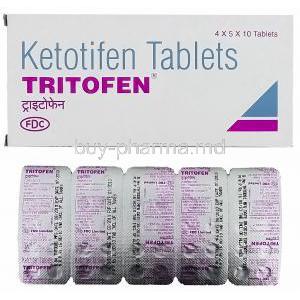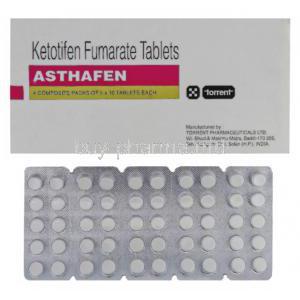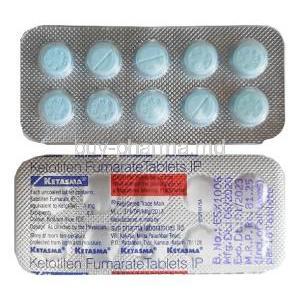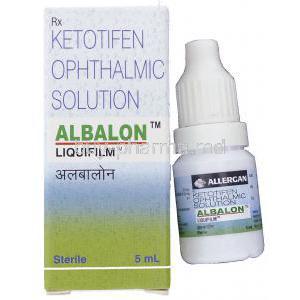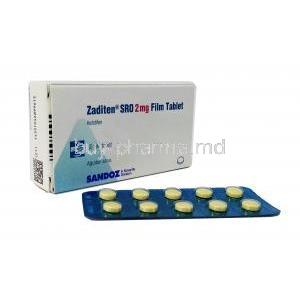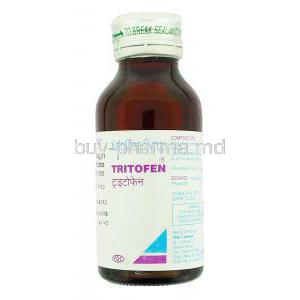Becoride Inhaler
- Introduction
- Â
- Composition
- Â
- Uses
- Â
- Off-Label Use
- Â
- How It Works
- Â
- Dosage and Administration
- Â
- Side Effects
- Â
- Common Side Effects
- Â
- Interaction
- Â
- Warnings and Contraindications
- Â
- Careful Administration
- Â
- Administration to Elderly
- Â
- Administration to Pregnant Women and Nursing Mothers
- Â
- Administration to Children
- Â
- Important Precautions
- Â
- Storage
- Â
- Overdosage
- Â
- Handling Precautions
Introduction
Asthma is a respiratory condition involving inflammation and narrowing of the airways. Managing this condition carefully is crucial to reduce symptoms and improve the quality of life for patients. The Becoride Inhaler plays a role in this treatment plan as it delivers medication directly to the lungs, providing immediate relief during asthma attacks and helping with long-term control.
Composition
The Becoride Inhaler combines two active ingredients to manage asthma effectively. One of these ingredients is beclometasone dipropionate, a corticosteroid that helps reduce inflammation in the airways and decreases the frequency of asthma attacks. The other ingredient is formoterol, an acting beta agonist that helps widen the bronchial passages, making breathing easier. This combination of medications in the inhaler is effective in maintaining health.
- Beclometasone Dipropionate: It reduces airway inflammation. It helps control the immune response responsible for triggering asthma symptoms.
- Formoterol: It relaxes the muscles and expands the airways, providing immediate relief from breathing difficulties and ensuring unobstructed airflow.
Uses
The Becoride Inhaler is mainly used to manage and prevent asthma symptoms. It plays a role in both immediate and long-term asthma treatment strategies. Its effectiveness in controlling asthma attacks is supported by its formula, which targets the underlying inflammation and immediate constriction of the airways that occur during asthma episodes. This dual action approach not reduces the severity of attacks but also significantly decreases their frequency leading to improved respiratory health and better outcomes for patients.
- Asthma Control: Regular inhaler use can significantly reduce the frequency and intensity of asthma flare-ups, allowing individuals to function better.
- Prevention of Asthma Attacks: By addressing the root causes of asthma symptoms, this inhaler plays a vital role in preventing sudden acute episodes.
Off-Label Use
Exploring the uses of the Becoride Inhaler beyond asthma is genuinely fascinating. This inhaler has proven effective in managing respiratory conditions, demonstrating its versatility in terms of its therapeutic benefits. Both empirical. Ongoing research supports its use for off-label purposes, especially in chronic obstructive pulmonary disease (COPD) and allergic rhinitis cases. This highlights how it can help alleviate symptoms across situations and contexts. The effectiveness of the inhaler in improving lung function and enhancing the quality of life has been demonstrated through trials and observational studies, thus opening up possibilities for broader therapeutic applications.
How It Works
The Becoride Inhaler treats asthma by targeting the underlying causes of the condition. When you use it, the active ingredients work together to do two things: beclometasone dipropionate reduces inflammation that leads to asthma attacks, and formoterol helps open the airways, making breathing easier. This combined approach not helps with immediate symptoms of asthma but also helps control it in the long term reducing the number of attacks and improving lung health.
- How it Works: The inhaler ingredients work together to reduce inflammation and improve airflow in the lungs, addressing both short-term relief and long-term asthma management.
- Effects on Asthma Symptoms: As a result, using this inhaler relieves breathing difficulties and can help reduce the frequency and severity of asthma attacks over time.
Dosage and Administration
It is essential to use the Becoride Inhaler to maximize its effectiveness as a treatment. The recommended dosages may vary depending on age, as each patient group requires an approach for optimal results. Following a step-by-step inhaler regimen is crucial for ensuring the medication is delivered correctly and is essential for achieving the desired benefits.
- The dosing parameters have been precisely calibrated to manage symptoms while minimizing side effects. To ensure that the medication reaches into the lungs it's important to follow proper inhaler technique, which involves shaking the inhaler exhaling before inhaling and holding your breath after inhaling.
- To enhance the efficiency of medication delivery, it is recommended to maintain your inhaler and periodically review your technique with healthcare professionals.
This will help ensure you get the most out of your medication.
Side Effects
The therapeutic journey with the Becoride Inhaler, although effective in managing asthma, can come with potential side effects. Depending on how each patient responds, these reactions can range from mild to severe. Follows their prescribed dosages. Recognizing and addressing these side effects is essential so as not to overshadow the inhaler's benefits. To manage them effectively, it is crucial to adjust the dosage as needed and provide treatment as part of a comprehensive asthma management plan.
- Overview of Side Effects; Some potential reactions may include oral thrush, hoarseness or a paradoxical increase in wheezing immediately after using the inhaler.
- Managing and Mitigating Side Effects: Taking care of oral hygiene using a spacer device when operating the inhaler and seeking guidance from healthcare professionals if experiencing persistent adverse effects are proactive measures to minimize discomfort and potential health risks.
Common Side Effects
Among the range of side effects, some reactions are more frequently reported by individuals using the Becoride Inhaler. Although generally mild and temporary, these typical side effects can impact adherence to treatment and patient comfort. It is essential to be aware of these side effects and take action if symptoms worsen to maintain a good relationship between the patient and the inhaler.
- Common Side Effects; The commonly experienced side effects include oral thrush, a sore throat, coughing and headaches.
- When to Seek Advice; If side effects persist, worsen or significantly affect your daily life it is crucial to seek medical advice.
This will help reassess the suitability of your treatment plan and explore alternative management strategies if needed.
Interaction
Like any medication, the effectiveness and safety of the Becoride Inhaler can be affected by interactions with drugs, food, and lifestyle choices. It's important to understand these interactions to optimize the benefits of the treatment and minimize any risks.
- Interactions with Medications: Using certain medications at the same time as the inhaler, such as beta-blockers or other corticosteroids, might affect how well the inhaler works or increase the likelihood of experiencing side effects
- Interactions with Food and Lifestyle: Making lifestyle changes, like maintaining a diet and avoiding tobacco smoke, can improve the effectiveness of treatment and reduce the chances of experiencing adverse reactions.
Warnings and Contraindications
The administration of the Becoride Inhaler is beneficial for managing asthma. It's essential to be cautious in certain medical conditions and situations. This caution is necessary because using Becoride can worsen existing conditions or cause reactions. It's critical to identify when using Becoride is not recommended to protect patients from complications and ensure they can benefit from the inhaler without harming their overall health.
- Specific Health Conditions Requiring Caution: Patients with tuberculosis, untreated fungal or bacterial infections, systemic viral infections, or pre-existing osteoporosis should approach the use of Becoride with caution due to the risk of aggravating these conditions.
- Situations Where Becoride Should Not Be Used: It is not recommended for individuals with hypersensitivity to beclometasone or any ingredients in the formulation. Additionally, it should not be used during status asthmaticus or acute asthma episodes where intensive measures are necessary.
Careful Administration
To ensure the safety and effectiveness of Becoride, it is essential to have guidelines tailored for different populations. These guidelines play a role in managing the risks associated with asthma and making sure that people from diverse backgrounds, including pregnant or breastfeeding women, children, and individuals with chronic illnesses, can benefit from Becoride while also taking into account their specific needs. When prescribing Becoride to these populations, extra attention should be given to adjusting dosages and carefully monitoring for adverse effects.
Administration to Elderly
When administering the Becoride Inhaler to patients, it is essential to make adjustments and take precautions due to the physiological changes that occur with aging and the higher likelihood of concurrent conditions. These adjustments are necessary to minimize side effects and ensure the inhaler remains effective while keeping patients safe. To achieve this, it is recommended to start with dosages and closely monitor for systemic corticosteroid effects, considering potential reductions in renal and hepatic function in this age group.
Administration to Pregnant Women and Nursing Mothers
The administration of Becoride Inhaler during pregnancy and breastfeeding involves a balance between ensuring the respiratory health of the mother and safeguarding the well-being of the fetus and newborn. Considering current research and clinical prudence, it is crucial to evaluate the safety profile of Becoride in these situations. Although there is data on using Becoride during pregnancy and breastfeeding, it is essential to weigh the potential risks against the necessity of managing asthma, which can pose significant risks if left untreated for both mother and child.
- Safety Profile and Considerations During Pregnancy: The use of Becoride should only be considered if the benefits for the mother outweigh any risks to the fetus. It is recommended to use the most effective dose possible.
- Considerations During Breastfeeding: Since no information is available on how Becorides components are excreted in human milk, nursing mothers should consult healthcare professionals to evaluate the benefits versus potential risks before using this medication.
Administration to Children
The management of asthma using the Becoride Inhaler requires a customized treatment plan that considers children's unique physiological and developmental characteristics. Adjusting the dosage to ensure safety and effectiveness in this vulnerable population is crucial. Determining the correct dosage can alleviate asthma symptoms and minimize potential side effects for children. To assure safety, starting with the lowest effective dose and regularly reassessing and adjusting as needed is essential.
Important Precautions
Managing asthma effectively with Becoride goes beyond relying on medication. It involves considering the impact of lifestyle factors as well. It is essential to recognize and address the factors that can trigger asthma symptoms or make them worse. By taking an approach patients can empower themselves to navigate their surroundings strategically minimizing asthma triggers and maximizing the effectiveness of Becoride in maintaining respiratory health.
- Factors Influencing Asthma Management about Environment and Lifestyle: Exposure to allergens, pollutants, tobacco smoke, and extreme weather conditions can impact controlling asthma. This calls for measures to avoid such triggers.
- Tips for Avoiding Triggers and Effectively Managing Asthma with Becoride: Educating oneself about triggers, implementing environmental controls at home and work settings, and adhering to a prescribed regimen of Becoride are essential steps towards achieving optimal control over asthma.
Storage
To ensure that the Becoride Inhaler remains compelling in its function, following proper storage guidelines as recommended by pharmacological standards is essential. The stability of the ingredients in the inhaler depends on maintaining an environment that avoids extreme temperatures, moisture, and direct sunlight. Additionally, it is crucial to be aware of the inhaler's shelf life and how to dispose of expired or no-needed inhalers responsibly.
- Remember to store the inhaler at room temperature from heat and light and always keep the cap on when not in use to protect it from moisture.
- Take note of the expiration date on the inhaler. Consult local guidelines for safe pharmaceutical disposal when it expires or is no longer required.
Overdosage
Recognizing and taking action in cases of overdosing with Becoride Inhaler is crucial to minimize adverse outcomes. Overdosing can lead to a range of symptoms that worsen the side effects. It is essential to intervene and provide appropriate treatment options to address the physiological effects of overdosing, ensuring patient safety and preventing long-term complications.
- Symptoms of Overdosing: Signs may include palpitations, headaches, trembling, and, in some situations, high blood sugar levels and low potassium levels.
- Immediate Actions and Treatment Options: It is vital to stop using the medication and seek medical attention. Treatment mainly focuses on providing support and addressing symptoms based on their presentation.
Handling Precautions
It is crucial to pay attention to the cleaning and maintenance of the Becoride Inhaler. This is important for ensuring that it functions optimally and minimizing the risk of infection. Safety precautions are essential to prevent dosing or exposure, especially in households with children or vulnerable individuals. By following these precautions, you can protect yourself and ensure the inhaler provides its intended benefits.
- Instructions for Cleaning and Maintaining the Inhaler: It is essential to clean the inhaler regularly per the manufacturer's instructions. This helps prevent any buildup of medication and potential blockages.
- Safety Measures: Always keep the inhaler out of reach of children and pets and never share it with others. These practices are fundamental in preventing exposure.





